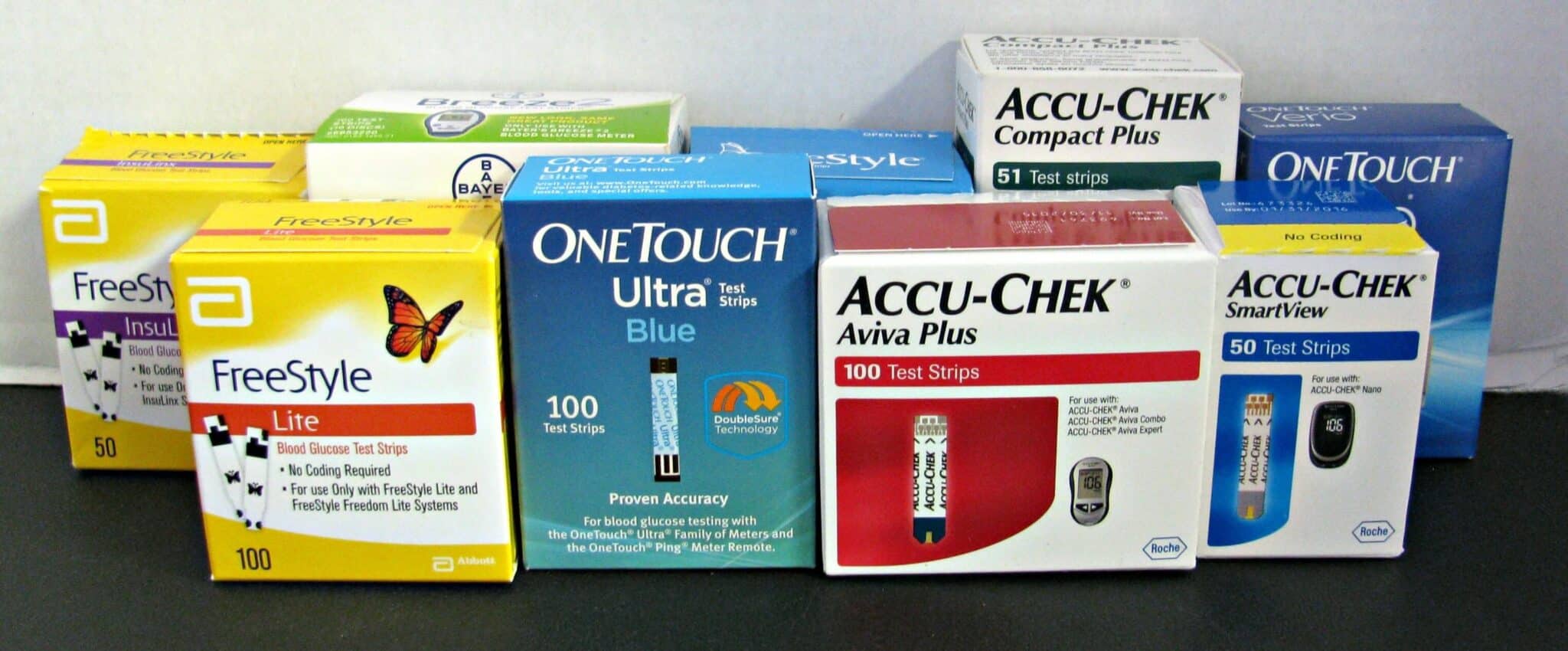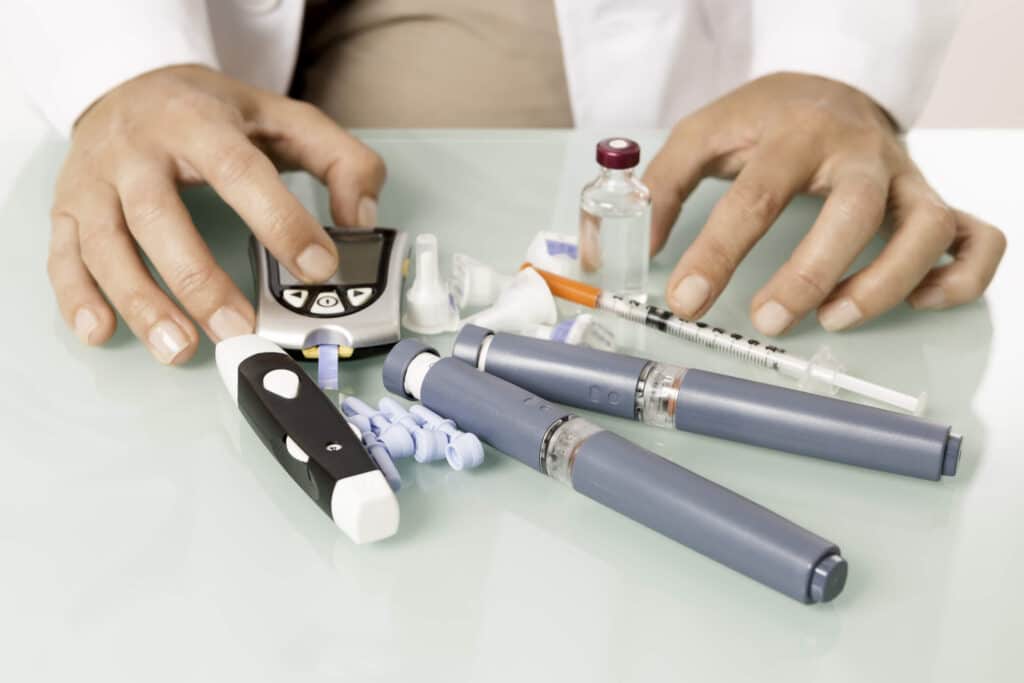
What to Do With Expired Diabetic Test Strips
Posted on January 11, 2023 at 02AM
Expired Diabetic Test Strips Require Safe, Strategic Action
Managing diabetes requires reliable test strips, accurate glucose meters, and timely access to the proper medications and supplies. Over time, many patients accumulate expired or unused diabetic products—often due to prescription changes, supply overstock, or shifting blood sugar levels. These items may seem harmless at first, but they can compromise the overall safety and reliability of daily diabetes management. Inaccurate blood sugar readings, for example, can lead to misinformed insulin doses and increased health risks. Maintaining a dependable monitor routine is essential, and knowing the right way to handle surplus or outdated supplies is part of that responsibility.
This content offers clear guidance on what to do with expired test strips, addressing common questions and presenting innovative alternatives. From understanding the impact of expired supplies to exploring options such as recycling, donating, or earning cash, our goal is to help you protect your health, support others, and reduce waste. Whether you’re managing your care or helping someone else, this approach ensures you’re making informed, safe, and effective choices.
Expired Test Strips Become Unreliable and Pose Health Risks
Test strips contain enzymes and chemicals that react to blood sugar. After the expiration date, these materials begin to break down, making the readings less accurate and potentially misleading. This creates a serious risk for people with diabetes who rely on precise data to calculate insulin doses or adjust their medication. The device used to process these strips cannot compensate for chemical degradation, thereby increasing the likelihood of incorrect readings. For this reason, there’s a critical need to check expiration dates regularly and incorporate proper habits—just as one would prioritize exercise or nutrition—in maintaining safe and effective diabetes management.
Using expired test strips may:
- Lead to false results
- Cause under- or overdosing of insulin
- Interfere with medical programs
- Undermine diabetes care routines
Many people are unaware of this distinction, especially when expired boxes appear to be new or unused. However, accuracy is critical in diabetes management, and outdated supplies can disrupt that balance.
Proper Storage and Rotation of Supplies Maintain Effectiveness
To prevent early expiration, store test strips, lancets, syringes, and other diabetes supplies in a calm, dry environment. Always follow the instructions found on the original packaging. Keep blood sugar monitoring devices away from heat, humidity, and sunlight.
Tips for adequate storage and replacement:
- Use the “first-in, first-out” method
- Mark open dates on each box
- Check expiration dates monthly
- Maintain a clean, safe environment for your kit
These steps ensure that your glucose monitors and related devices remain reliable and accurate. Maintaining the accuracy of your supplies is crucial for protecting your health and ensuring the overall success of your programs or services.
Expired Diabetes Products Create Risks for Patients and Programs
Using expired diabetes supplies creates more than personal health concerns—it can lead to serious complications, impact medical programs, delay treatment, and introduce legal issues if distributed improperly.
Expired glucose meters, medication, or strips can:
- Undermine clinical results
- Lead to misdiagnosed cases
- Increase emergency room visits
- Violate medical regulations
Patients, caregivers, and healthcare providers must exercise caution when dealing with outdated products. Even expired items, such as syringes, lancets, or food-related packaging used for diabetic nutrition, can cause harm if reused improperly.
Proper Disposal Prevents Health Hazards and Reduces Environmental Waste
Disposal of expired test strips must follow proper medical guidelines. Tossing them in household trash can cause environmental contamination, especially if blood has come into contact with the products or supplies.
Safe disposal methods include:
- Using approved sharps containers for lancets and syringes
- Bringing unused test strips to pharmacies or hazardous waste centers
- Checking local regulations for medical waste collection days
- Asking your healthcare program or services for guidance
Reducing waste and preventing contamination are essential components of responsible diabetes care. People should be informed about how to properly reuse, recycle, or dispose of medical items.
Near-Expired or Surplus Supplies Offer Opportunities for Reuse or Resale
Many diabetics and caregivers find themselves with extra supplies—often unopened, unused, and still within their expiration period. These can be:
- From changed medication plans
- Due to insurance-supplied overstock
- Resulting from the loss of a patient
- Leftover from switching glucose meters or brands
Instead of letting them go to waste, there are options for donating, selling, or redistributing these valuable products.
Popular options include:
- Selling diabetic supplies (only unexpired, sealed boxes)
- Donating to clinics, charities, or developing countries
- Recycling packaging components responsibly
Each of these alternatives requires checking expiration dates, verifying intact packaging, and understanding the guidelines on what is legally allowed.
Selling Diabetic Supplies Is Legal When Done Through Compliant Channels
Yes, you can get More Cash for Test Strips, but only if done correctly. The resale of diabetic supplies is legal in many areas, but only under particular guidelines.
Legal requirements include:
- Supplies must be unopened, sealed, and unexpired
- Boxes must be free of damage, stickers, or broken seals
- You must not sell any items received through Medicare, Medicaid, or state-funded programs
- You must work with a licensed or reputable program that follows federal regulations
Most buyers will require information such as brand, expiration date, condition of the box, and quantity. Reputable buyers often provide prepaid shipping and fast payments.
Selling your extra test strips not only provides you with cash but also helps others access affordable blood sugar monitoring tools.
Donations of Supplies Support Underserved Communities
Many people across the world and in underserved U.S. areas can’t afford diabetes supplies like glucose meters, lancets, or even food tailored to diabetic diets. Donations of unopened, unexpired test strips and items can make a real difference.
Your contributions may:
- Save lives in emergency cases
- Provide better control of blood sugar levels
- Help nonprofit programs expand access
- Support humanitarian services in remote regions
Look for programs such as Insulin for Life, Integrated Diabetes Services, or local community health centers. Always check donation guidelines, especially regarding expiration dates and packaging requirements.
Trustworthy Programs Provide Easy, Safe Disposal and Donation Channels
Not every program that buys or accepts test strips is legitimate. Choose services that:
- Follow HIPAA-compliant handling of patient data
- Respect medical guidelines and privacy rules
- Provide clear instructions on shipping, labeling, and eligibility
- Accept a wide range of brands and categories
Many licensed platforms display their logo, regulatory certification, or FDA-compliance information. Avoid companies that request damaged or expired supplies, as this may violate health regulations.
For patients, families, or caregivers who find themselves with excess inventory, these verified options provide peace of mind and convenience.
Community Education Improves Health and Reduces Waste
Broader awareness is key to reducing the volume of expired, wasted, or improperly used diabetes supplies. Whether you’re a diabetic, caregiver, nurse, or pharmacist, sharing information helps others make safer choices.
Education efforts can include:
- Teaching safe storage and replacement practices
- Explaining the difference between expired and safe-use supplies
- Promoting proper disposal, donation, or recycling
- Advocating for patient rights and fair access to supplies
- Sharing resources like guidance hotlines or disposal events
Empowered people make better decisions, leading to healthier lives and less environmental waste.
Expired and Extra Diabetic Supplies Can Be Recycled, Donated, or Sold
In conclusion, expired test strips should not be ignored or casually thrown away. Whether you’re managing your diabetes, helping a loved one, or cleaning out unused medical items, you have options.
Take these steps:
- Check the expiration dates on all your supplies
- Separate sealed, usable products from expired ones
- Sell eligible test strips through legal platforms
- Donate unused items to charities or services
- Follow safe disposal protocols for expired goods
- Educate others on diabetes care and supply management
There’s value in the products sitting in your medicine cabinet—whether it’s financial, charitable, or environmental. Choose the path that fits your situation, helps others, and gives your supplies a meaningful second life.
Frequently Asked Questions
1. Can expired test strips affect my A1C results over time?
While A1C is measured through lab tests and not home meters, consistently using expired test strips with inaccurate readings may lead to improper insulin dosing or medication adjustments, which can indirectly skew your A1C trends.
2. Is there a difference in expiration timelines between brands of test strips?
Yes. Some brands have longer shelf lives due to their use of different enzyme formulations or advanced packaging technology. Always check individual box expiration dates and manufacturer guidelines.
3. Can I donate diabetes supplies internationally if they’re close to expiration?
Many global donation programs accept supplies nearing expiration—usually with at least 3–6 months of validity. However, each organization has its standards, so it’s important to confirm before donating.
4. How do I identify counterfeit test strips before donating or selling?
Check for tamper-evident seals, batch numbers, and the manufacturer’s contact information. Reputable buyers and donation programs will also inspect the packaging and often reject suspicious products.
5. Can pets or animals use expired test strips for diabetes monitoring?
The veterinary use of human test strips is not uncommon. However, expired strips are still discouraged, even for animal care, due to the risk of inaccurate readings that can affect dosage decisions.
6. Do expired test strips still work with newer glucose meters?
Even if they seem compatible, expired strips often don’t work correctly due to chemical degradation. Newer meters may even reject older strips to ensure accuracy.
7. Can old test strips be used for diabetes education or training purposes?
Yes, some expired strips can be used for non-medical training, such as in classroom demonstrations or caregiver education—provided they’re not used for live testing.
8. What should I do if I accidentally use expired strips for a few days?
Monitor for signs of abnormal glucose control and retest with non-expired supplies. Consult your doctor to determine if any medication adjustments or logs require correction.
9. How can I safely travel with test strips to avoid early degradation?
Please keep them in their original packaging, store them in a cool, dry carry case, and avoid extreme temperatures. Please don’t leave them in hot cars, in direct sunlight, or near humid items like food containers or water bottles.
10. Can expired lancets or syringes pose a higher infection risk?
Yes. Even if unused, lancets and syringes past expiration may have compromised sterility, increasing the risk of contamination and infection. Dispose of them using approved sharps containers.


